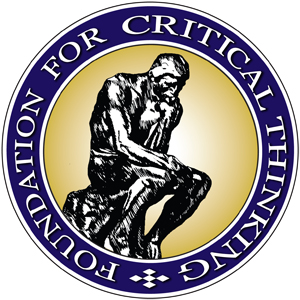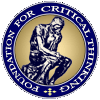




Translate this page from English...
*Machine translated pages not guaranteed for accuracy.
Click Here for our professional translations.
October 13, 2011 Join us for our Spring 2012 Workshops in Critical Thinking at the Claremont Hotel, Berkeley, California In the spring workshops we focus on critical thinking as essential to education. We will offer two workshops for new or returning registrants and one for those ready to go to deeper levels of critical thinking theory and application. Choose one of the following sessions for the three-day workshops: - Engaging Students in Taking Ownership of Content Through Thinking…Dr. Linda Elder - Fostering 21st century skills through a substantive conception of critical thinking: Using the Tools of Critical Thinking to Teach Students How to Study and Learn…Dr. Enoch Hale - Becoming a Critical Thinking Theorist …Dr. Richard Paul (note: this is an advanced session)
Click here to read more about these sessions and get more information Spring 2012 workshops flier
{"id":3837,"title":"Spring 2012 workshops flier","author":"","content":"","public_access":"1","public_downloads":"1","sku":"","files":{"0":{"id":432,"filename":"data/pages/66/6247825f8700cee40130a80c54b0cfb94e961d03b2bca.pdf","realfilename":"data/pages/66/6247825f8700cee40130a80c54b0cfb94e961d03b2bca.pdf","title":"Please click here to download a color flier","order":0}},"images":{}}
|

The Foundation for Critical Thinking has reopened its publishing house at FCTPress.Org. Several publications are available now, including the award-winning Critical Thinking Therapy: For Happiness and Self-Actualization, with more to come.
The FCT Press also offers self-publishing services for authors.

